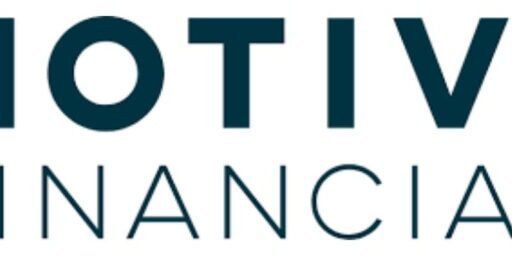Net Worth Update August 2012 (+1.53%) – End of the Summer Rally?
Welcome to the Million Dollar Journey August 2012 Net Worth Update. For those of you new to Million Dollar Journey, a monthly net worth update is typically posted near the end of the month (or beginning of the next) to track the progress of my journey to one million in net worth, hopefully by the time I’m 35 years old (end of 2014). If you would like to follow my journey, you can get my updates sent directly to your email or you can sign up for the Money Tips Newsletter..
Last month, I reported that the second half of July was showing a bit of bullish momentum. It appears that the bulls have followed through for an end of summer rally for both the TSX and the S&P500. This past month, the S&P500 has impressively retested the 2012 high (achieved in April) but whether or not there is further upside is questionable. The biggest warning sign right now is that the markets are increasing with lower volume – which may mean that the bull run may not be sustainable for much longer as the “smart money” is not buying. As well, September has been historically a terrible month for the markets, so we’ll see what happens!
In addition to the gains in the long term RRSP accounts, there were gains in the non-registered accounts as well. I found a few opportunities this past month, and took advantage of them with a few swing trades. Some of these plays include Gold, minerals, oil and gas and renewable energy.
Besides the market performance, there was very little activity except for the movement of some cash. First, I moved my monthly savings into my non-registered account (mentioned this in the July 2012 net worth update) and I transferred cash into my leveraged portfolio. Since the cash portion of my leveraged investment account has run dry, I increased the size of my investment loan by transferring $10,000 into my Canadian dividend stocks portfolio.
On to the numbers:
Assets: $744,000 (+2.76%)
- Cash: $4,500 (+0.00%)
- Savings: $20,000 (+0.00%)
- Registered/Retirement Investment Accounts (RRSP): $128,500(+1.98%)
- Tax Free Savings Accounts (TFSA): $40,200 (+0.50%)
- Defined Benefit Pension: $39,800 (+0.76%)
- Non-Registered Investment Accounts: $108,000 (+5.37%)
- Smith Manoeuvre Investment Account: $102,500 (+12.64%)
- Principal Residence: $300,500 (+0.00%) (purchase price adjusted for inflation annually)
Liabilities: $93,500 (+12.24%)
- Principal Residence Mortgage (readvanceable): $0 (0.00%) (Paid off in 2010!)
- Investment LOC balance: $93,500 (+12.24%)
Total Net Worth: ~$650,500 (+1.53%)
- Started 2012 with Net Worth: $585,228
- Year to Date Gain/Loss: +11.15%
In my last update, readers suggested to chart my net worth progress over time. Below are the net worth values since Dec 2006 with data points taken semi annually.
- December 2006: $198,500
- June 2007: $254,695
- December 2007: $279,300
- June 2008: $310,483
- December 2008: $309,950 (rough second half)
- June 2009: $355,850
- December 2009: $399,600
- June 2010: $456,910
- December 2010: $505,800
- June 2011: $558,713
- December 2011: $585,228
- June 2012: $631,400
Some quick notes and explanations to net worth questions I get often:
The Cash
The $4,500 cash are held in chequing accounts to meet the minimum balance so that we pay no fees (accounting for regular bill payments – ie. our credit card bill). Yes, we do hold no fee accounts also, but I find value in having an account with a full service bank as the relationship with a banker has proven useful.
Savings
Our savings accounts are held with PC Financial and ING Direct. We usually hold a fair bit of cash in case “something” comes up. The “something” can be anything that requires cash such as an investment opportunity that requires quick cash or maybe an emergency car/home repair. We also need cash to cover any future tax liabilities.
Real Estate
Our real estate holdings consist of a primary residence and REITs plus a rental property. The value of the principal residence remains valued at the purchase price (+inflation) despite significant appreciation in the local real estate market.
Pension
The pension amount listed above is the value of both of our defined benefit pension plans. I basically take the semi annual statement and add the contribution amounts (not including employer matching) on a monthly basis. The commuted value of the pensions are not included in the statements as they are difficult to estimate.
Stock Broker Accounts
Another common question is which discount broker do I use? We actually have accounts with multiple institutions. I’m hoping to reduce the number of accounts that we hold in the near future. Here is a review of some of the more popular online stock brokers.
I've Completed My Million Dollar Journey. Let Me Guide You Through Yours!
Sign up below to get a copy of our free eBook: Can I Retire Yet?










@Jenson: makes no sense. If you are looking to avoid “market volatility” then you should have your money in no market at all. To use core CPI is to avoid reality.
@SST
To answer your question, I use Core CPI because it excludes the items that you listed because they are subject to market volatility. I don’t want to see a large percentage gain/loss in my charted net worth just because the price of turnips, bananas, etc. suddenly changed. I’m interested in the impact inflation has on my asset-based net worth in the long run. In my opinion, this has little to do with how much fuel I can put in my car or groceries I can stuff in my cart for a set amount of money. If I was interested in tracking changes in my cost of living month over month, then I’d use Total CPI.
Great job! I’ve followed this blog for a while and it’s great to see the journey unfold. Smooth and consistent growth is what it’s all about as you’ve shown. I do similar calculations but I should probably get in a similar routine of doing it every month like this rather than about every quarter that I usually do.
I’ll be looking forward to seeing you reach your goal at the end of 2014. At this point given your consistency it seems pretty likely assuming no major world-wide financial shifts that are out of your hands.
@Jenson: why would you, or anyone else for that matter, use core CPI which excludes “eight of the most volatile components (fruit, vegetables, gasoline, fuel oil, natural gas, mortgage interest, inter-city transportation and tobacco products) as well as the effect of changes in indirect taxes on the remaining components”?
Why use a measurement which eliminates items you consume every single day?
This is definitely NOT a true calculation of your change in purchasing power.
Core CPI is a worthless number except to academics and their ilk.
@Frugal
I use the Bank of Canada’s Core CPI value on a monthly basis. This allows me to see the impact every month.
Very impressive Frugal! Well done
@Kirk, as Andrew mentioned, most of my growth has been from debt repayment, savings – and some investment growth.
@Sampson, I still have a little over a couple of years. It will be tight (providing there aren’t any more 2008 market crashes), but I think I’ll be close by the end of 2014.
@Jenson, that is interesting method. Do you adjust to CPI annually? Or just take an arbitrary number like 3%?
Hi, I was just wondering how you managed to get 40k in your TFSA. I have been making max deposits in mine. I also got pretty good returnds by investing it all in gold and silver. Despite this I only have 26k in mine. Thanks
Hey Frugal,
Great update. You’re on a great path.
I started calculating my own net worth using a similar method about a year ago. Like you, I calculate my real estate assets by just correcting the purchase price for inflation rather than trying to make sense of what the market value might be.
In addition to this, when I calculate my percentage growth, I also correct my cash/equity/loan balances for inflation so that I can see what my real growth/loss is. I find it to be quite telling to think of my net worth not just in terms of dollar amounts, but also in terms of purchasing power.
Have you ever considered doing the same?
Kirk, almost all of the NW gain is savings. Really, it is conversion of human capital into financial assets.
It goes to show that there are no substitutes for saving if you want to build net worth.